How To Metal Detect Successfully
Useful Tips On Metal Detecting and Treasure Hunting, page 4
(CONTINUED from Previous Page)
12) Always keep a medicine container filled with cotton balls for storing many small valuable finds. Or use it as a coin container.
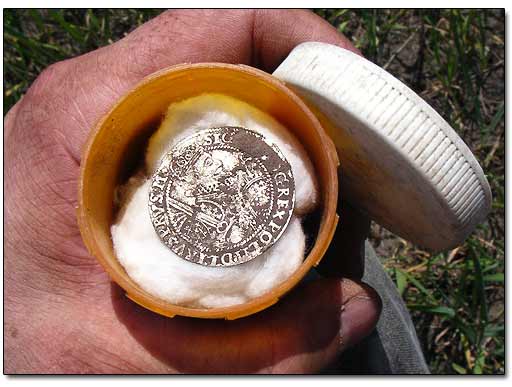
13) Always assume that the treasures you seek are there, and you are merely overlooking them. Observe, deduct, use your equipment less than your mind.
14) Disappearance of a good signal sometimes occurs during the target recovery. It can be caused by two factors: 1) a reaction between the "Halo Effect" and the discriminate function, and 2) inaccurate pinpointing (read all details in "Pinpointing Techniques" section).
15) Dig all target signals at previously detected hunt sites. It is possible to find new targets in searched out areas where other detectors have been unable to cope with a high level of mineralization or iron trash. Reworking a hunt site at angles perpendicular and oblique to the original grid patterns may also increase your odds.
16) In heavily mineralized areas, you may need to sweep the coil 10 - 20 mm ( ½ - 1") above the ground. This should give a more stable Threshold and less ground noise. If your detector's performance is not improved, you may need to use a smaller size search coil. The smaller the coil, the less mineralization it "catches." If that does not help, you may have to switch to the Double-D search coil which is less susceptible to the soil's mineral content. Your last resort is to reduce Sensitivity and increase Discrimination a bit.
17) When you are detecting in areas of extremely variable mineralization, detect along the ground contours rather than across them. This will often minimize the effect of various minerals and stabilize your detector (false signals will be at minimum level).
18) If your metal detector does not have a rain cover, if caught in rain, use the sandwich plastic bag with zipper to protect the control box.
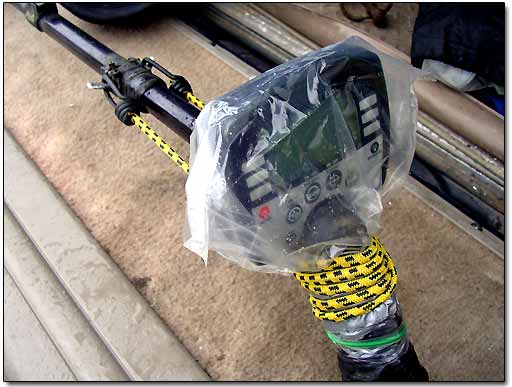
19) Introduce your friends to the hobby. They might give you interesting ideas or just help you dig! :)
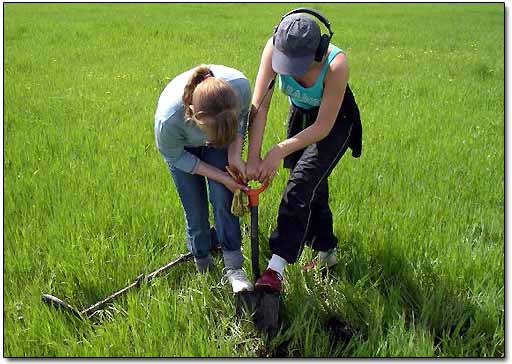
20) To learn your metal detector's responses to desirable and undesirable targets under ideal metal detecting conditions, conduct an Air Test (also called "Bench Test") with different types of targets, good and bad, that are typical for your local area.
21) If you want to educate yourself more about what you intend to find and the capabilities of your detector, construct an outdoor Test Garden.
22) Always fill in the hole after you dig up a target. The uncovered holes are not only unsightly, but they can be dangerous to people or animals walking in the area. Before filling a hole, be sure to scan it again to ensure that you have recovered everything in and around it.
Do Not Leave A Mess Like This Behind!
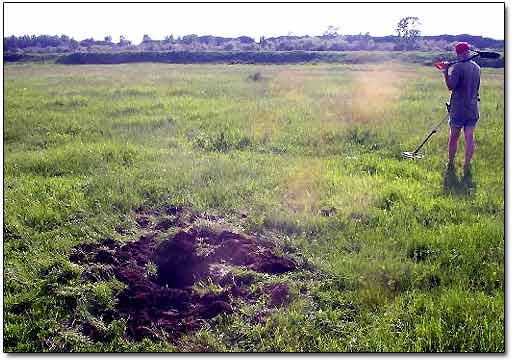
23) Be a considerate and responsible treasure hunter, follow the treasure hunter's Code of Ethics. The God Of Metal Detecting is watching YOU!
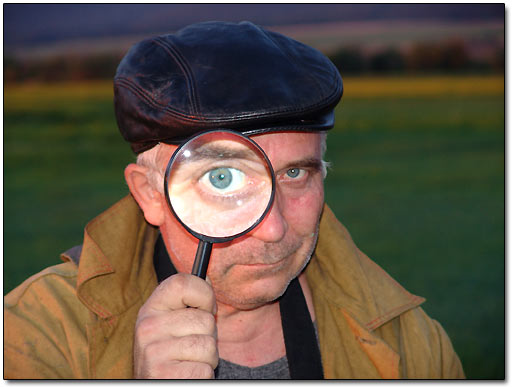
Subjects covered in this section represent just the tip of a huge "iceberg" of helpful and useful information that is given in more details in other sections of my web site. So, if you would like to learn more, follow the simplest principle of metal detecting: "the more you dig, the more you find!" :)